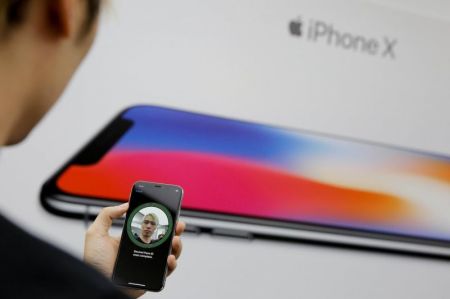Apple Is Causing Sluggishness in Your Phones to Increase Profits

OK, they're not holding you at gunpoint or dragging you into the nearest Apple store. That would be too obvious and noticeable! No, if they're doing it, they are doing it craftily by getting you to decide to do it yourself. Here's how.
Every autumn around the same time, Apple has a product launch to announce updates and new versions of their products. Shortly before that, they release an update to their mobile operating system. Excited, iPhone users download the update, which of course is free, to enjoy some nifty new features. Pretty soon, they start to experience a sluggishness in their phone that wasn't there before. They tolerate it for so long before many finally cave in to the promotion of Apple's latest products and abandon their still-working phone for a brand new one to the tune of several hundred dollars. Happy user, happy big tech company.
So is Apple guilty of using various methods to encourage customers to buy new products before their old ones actually expire, a technique known to the business world as "planned obsolescence"? In a word, yes. But they are not alone. The uniquely American business practice has been around for over a hundred years, from turn-of-the-century lightbulb manufacturers to dominance in the automobile and electronics industries. It wouldn't be a surprise to find today's big companies utilizing the practice to increase profits, especially in the cut-throat, high-speed world of tech. And given the amount of control Apple wields over its products and users, including mandatory Apple IDs, required updates to software, tamper-resistent screws, limits to support of older products and restrictions on third-party apps and hardware makers, it's easy to see why the company would also want some say over how long customers use their products and how often they upgrade them.
In December of 2017, Apple publicly acknowledged that its latest operating software (iOS 11) slows the performance of older iPhone models to prevent unexpected shutdowns. The excuse? As iPhone batteries age, they can struggle to keep up with a phone's power demands, which can result in the phone shutting down to protect core components. As a workaround, Apple says it has tweaked their mobile operating system to reduce the chance of sudden shut-offs by slowing certain tasks that require more power. They're doing iPhone 6, 6S, SE, and even 7 users a favor by extending the life of their device by reducing performance to prevent shutdowns. "Our goal is to deliver the best experience for customers, which includes overall performance and prolonging the life of their devices," Apple wrote in a statement about the issue. Such a caring company!
Still, for many, Apple's tinkering of the performance of their iPhones is unwelcome and amounts to deceptive business practice. In France, the Paris prosecutor's office has opened an investigation into what it alleges as programmed obsolescence. And in the U.S., Apple is being questioned by Sen. John Thune (R., S.D.), chairman of the Senate Commerce Committee, about the practice of throttling performance on older iPhones and how Apple is handling customer complaints about it.
We all know that technology can degrade over time, especially if more is demanded of the original components long after purchase. But a $700 phone should last more than a year or two! Is it appropriate that Apple would make a free update available to ALL iPhone users knowing that older iPhones would struggle to handle the demands of the new software and the new app programming that accompanies it? In the future, you might think twice before downloading a free iOS update that will make your phone less powerful and less dependable in exchange for a few new bells and whistles.
And what of the economic consequences? We so readily cast aside our older technology that still works in favor of the newest offerings. We spend our hard-earned money replacing things that are not broken just to keep up with the Jonses and in response to the psychological impact of companies advertising happy people using their latest products. As activist and author Micah White puts it: "We grow old in a world surrounded by things whose disposability is prized above all else. The need to constantly replace the objects in our lives keeps us locked into our overworked, over stimulated and under paid daily grind. We work to buy things that are built to die so that we must work to buy more things that will break. A vicious cycle with two exits: the consumer's debt-ridden grave or the freedom of the partisan who vows to repair this world."
Your Turn
The lure of having the latest and greatest phone is overpowering for many smartphone users. With new upgrades and additions to the tech we use coming out at blistering speeds, do we have the self-control and sense of contentment required to look at Apple's latest offering and say no to it? How has planned and psychological obsolescence affected your buying choices?
To learn more about the history and future implications of planned obsolescence, check out Giles Slade's book Made to Break: Technology and Obsolescence in America.
Andrew McDiarmid is a media specialist at the Discovery Institute. His writing has appeared in a variety of Scottish-themed print magazines as well as Relevant Magazine, EvolutionNews.org, the Washington Times, Yahoo Voices and AOL. Contact him at [email protected].




















